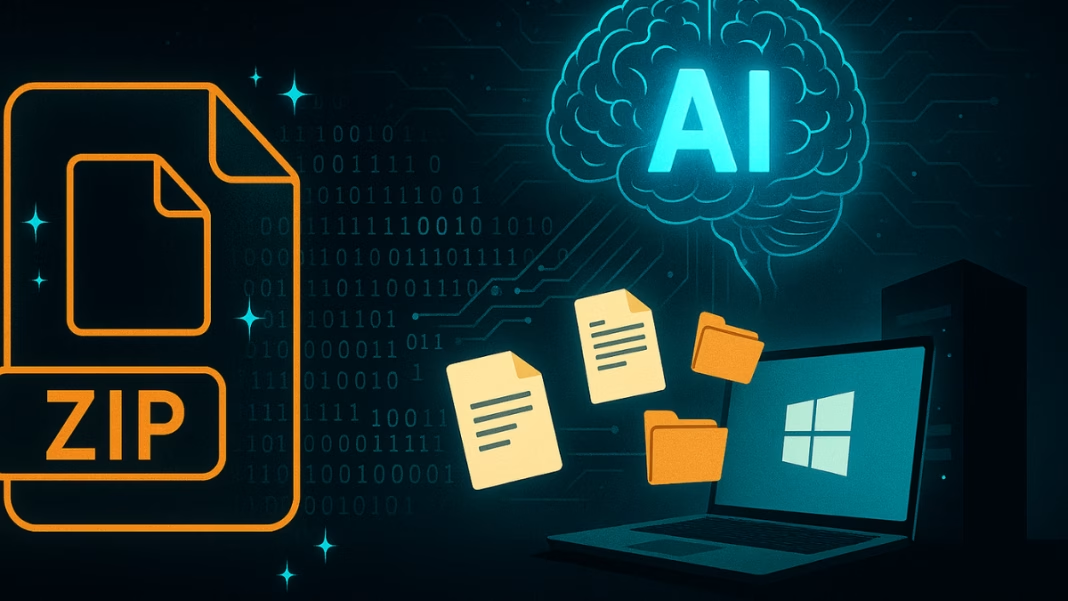A new type of computer virus has been discovered. It’s called LazyHug, and it’s unlike anything we’ve seen before. LazyHug is the first known malware that uses artificial intelligence to steal information from Windows computers. What makes it more dangerous is how smart it is.
What is LazyHug and Why It’s Dangerous
Instead of being just another computer virus, it uses technology similar to ChatGPT and other AI chatbots to carry out its attacks.
Ukraine’s national cyber defense team discovered LazyHug. They believe a Russian hacker group called APT-28 created and used the malware. This group has carried out major cyberattacks in the past.
LazyHug uses an open-source AI model developed by Alibaba called Qwen-2.5-Coder-32B-Instruct. It works by taking instructions in simple language and turning them into actual computer code. That means hackers don’t need to pre-program every move the malware makes. They can simply tell the AI what they want it to do, and it will create the right commands on its own.
The malware is written in Python, one of the world’s most common programming languages. This makes it easier for hackers to change how the virus behaves without having to start from scratch. It also makes it more difficult for traditional antivirus software to spot.
How LazyHug Gets Into Computers
The hackers behind LazyHug sent emails pretending to be from Ukrainian government officials. These emails contained a ZIP file, which looked like it had useful or interesting programs inside. The ZIP file had two files with names like “AI_generator_uncensored_Canvas_PRO_0.9.exe” and “image.py.” These names might sound like software for AI or design, but they were actually carrying the virus.
Once someone opened the ZIP file and clicked on either of the fake files, LazyHug quietly installed itself. There were no warning messages or error pop-ups. The malware began to run in the background without the user noticing anything was wrong.
🔓 China’s Hack-for-Hire Network Exposed as Silk Typhoon Mastermind Faces Extradition
LazyHug started scanning the infected computer’s folders. It focused on Documents, Downloads, and Desktop folders, where people often keep personal and work-related files. It searched for text and PDF files. Once it found them, it sent copies to a secret server controlled by the hackers. All of this happened quietly, without alerting the user. No computer slowdown, no antivirus alarm—just silent theft.
Because the malware is AI-powered, it didn’t need to be told exactly what to look for in advance. It could understand natural language commands, just like a chatbot, and then act on those instructions. This flexibility is part of what makes LazyHug so worrying to security experts.
Why LazyHug Has Set Off Alarms in the Cybersecurity World
LazyHug is being called the first malware of its kind because of how it uses large language models, or LLMs. These models, similar to the ones used in ChatGPT and Gemini, can turn plain English into working computer commands. With LazyHug, hackers don’t have to keep sending new versions of malware. They can simply let the AI create new commands on the fly, depending on what it finds on the victim’s computer.
According to experts at IBM’s threat intelligence platform, LazyHug makes it possible for hackers to carry out attacks that are constantly changing. This makes it much harder for security tools to detect what’s happening. Most antivirus programs look for patterns or known viruses. But if the malware keeps changing, those tools might miss it completely.
💻 Ukraine’s Digital Blitz Hits Gazprom—Putin’s Energy Empire Shaken
LazyHug has now become a top concern in the cybersecurity community. It shows that hackers have found a way to turn helpful AI tools into weapons. And because the malware can think and act differently each time, it makes defending against it even more difficult.
Another recent malware called Skynet also uses tricks to avoid being caught by AI-based security systems. But LazyHug goes a step further. It doesn’t just hide from AI—it uses AI to attack. This means we’re now in a time where computer viruses can be smart, fast, and flexible, all thanks to artificial intelligence.
While it’s still unclear how deep the damage goes, LazyHug has already changed how experts view cybersecurity. It’s a strong warning that even tools made to help people can be turned into tools for harm if they fall into the wrong hands.
